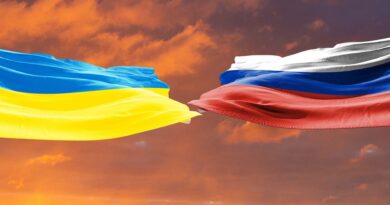Sanctions Against Russia Failed. I Saw It Firsthand. Scott Ritter

er the start of the special military operation. Many of these sanctions involved Russian energy, and the resulting economic chaos in global energy markets prompted gas prices to surge. Biden was quick to blame Russian President Vladimir Putin, claiming on June 22, 2022, that “the simple truth is gas prices are up almost $2.00 a gallon because of Vladimir Putin’s ruthless attack on Ukraine.”
Biden called the increase in cost “Putin’s Price Hike”, but the American people saw through the subterfuge, as the sticker on the pump proved. If anything, the increase in gas prices prompted many Americans to look at the sticker after examining the bill, and sarcastically proclaim, “Thank you, Joe Biden.”
Upon my arrival to Russia, I expected to see a nation heavily impacted by the consequences of American-led sanctions. Instead, I saw a nation undergoing an economic revival, in large part thanks to the policies Russia was compelled to undertake because of Western sanctions. When I told my Russian hosts about the sticker at the gas pump and my sarcastic appreciation, they laughed. “Send us the stickers,” they said. “And we will thank Joe Biden with all the sincerity we can muster!”
The best way to judge a man is most often based upon the weight of his own words, and when it comes to sanctions and the Russian economy, Joe Biden is no exception. On March 26, 2022, Joe Biden spoke before an audience in Warsaw, Poland about the conflict in Ukraine. One of Biden’s main objectives for his speech was to engender a sense of confidence among the crowd that his administration had the situation under control. The heart of Biden’s argument was the detrimental impact the program of systemic economic sanctions championed by the US, the European Union, the G-7, and NATO were having on the Russian economy.

Image: Military analyst and former UN weapons inspector Scott Ritter during his travel across Russia, May 2023. © Photo : Scott Ritter


